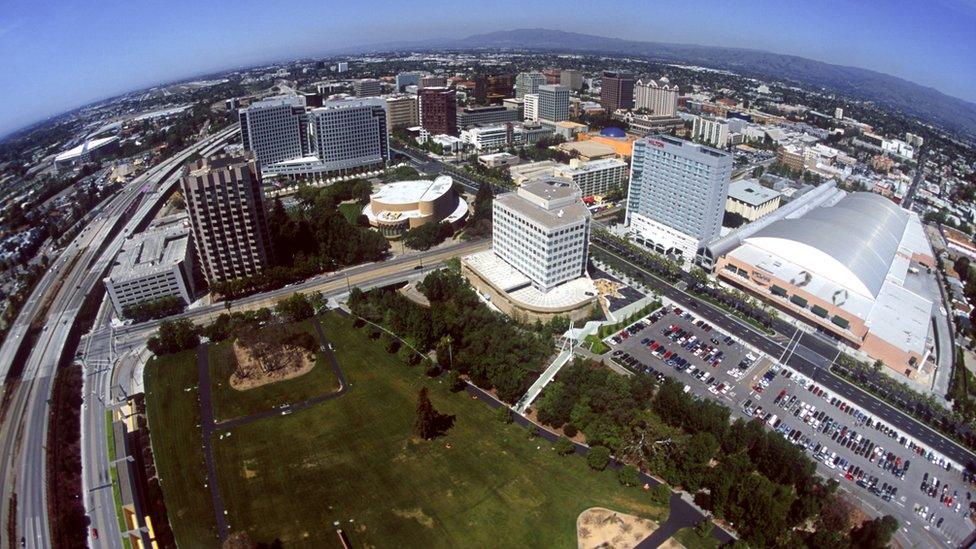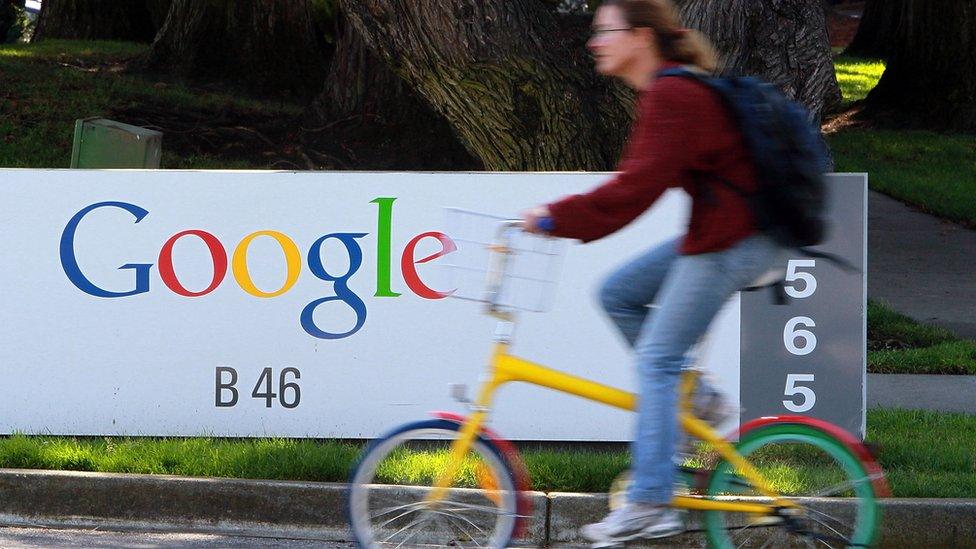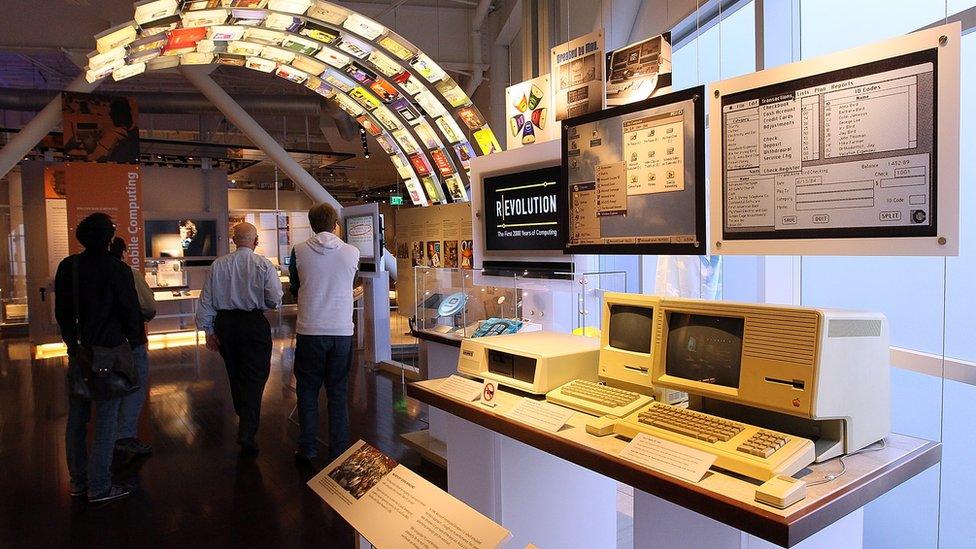Silicon Valley - still the capital of tech
- Published

What makes Silicon Valley tick? And can it go on ticking up profits as other centres of innovation snap at its heels?
That's what I've been pondering over recent days on a short trip here. What I've found is that this place is still far ahead of its rivals but finding real innovation here is becoming more of a struggle.
I am here to chair a BBC World Service debate on artificial intelligence at the Computer History Museum in Mountain View (you will be able to hear that next weekend) and we are also broadcasting this week's edition of Tech Tent from the museum.
It's the biggest collection of computer artefacts anywhere in the world, and it's not only a brilliant account of the progress of computing technology from Babbage's difference engine to the smartphone. It also provides a guided tour of the growth of Silicon Valley.
You hear about Hewlett and Packard setting up in a garage in 1939, you meet the team which was to found Intel and put the silicon in Silicon Valley, you visit Xerox Parc where the computer mouse and graphical user interface were invented.
And you come away realising that the current success stories - from Facebook to Uber - are standing on the shoulders of giants, benefiting from 70 years of innovation. Coupled with that long history, Silicon Valley has a world class university in Stanford, loads of talented engineers and a culture of risk-taking where a couple of failures are a badge of honour for an entrepreneur rather than a mark of shame.

Most important of all it has got bags of money, with half of all US venture capital flowing through the valley. But where will that cash head next in search of another Mark Zuckerberg or Elon Musk? High above Mountain View, in a slightly chaotic office in the middle of a refurbishment, I meet Christine Tsae. She spent years at Google before co-founding of the early stage investment firm 500 Startups, so she's in a good place to know what is the next big thing.
"E-commerce," she tells me."There are still lots of problems with how people buy things." She named a beauty and make-up business, Ipsy, which promotes its products through YouTube stars as one example of exciting new ideas in which her firm had invested.
Having just come from the Computer History Museum with my head full of extraordinary advances in technology I break it to her that this sounds, well, a bit dull. She laughs: "That might sound trivial compared with building a chip, but they're using technology to make lives easier." She points to recent hot start-ups like Uber and says that while they might not sound like they involve hardcore technology they ae still huge businesses changing the world - and that is innovative.
And one man whose story almost embodies the Silicon Valley spirit agrees with that view. Jyoti Bansal arrived from India aged 21 with nothing but a computer science degree, convinced this was the place to realise his ambitions. He found jobs in startups pretty quickly. "If you're strong in computer science you can get lots of jobs in Silicon Valley, and you can learn just as much from failures as successes," he tells me.
Then he started his own business and today AppDynamics employs 900 people in San Francisco and around the world.
This too seems a far from revolutionary idea, helping businesses monitor and improve their apps. But he says improving the basic infrastructure of business is the hot new trend in Silicon Valley right now, less glamorous than social networks or driverless cars but a faster route to solid revenues.

Inside the Computer History Museum in Mountain View, California
Back at the museum I find a Google server from 1999, with 20 off-the-shelf PCs jammed into a cabinet in distinctly home-made fashion to field early search queries. Here is a technology that changed the world - but the caption beneath the exhibit makes an important point.
It explains that until Google came along, internet search was a profitless activity. Since then, it has become the goldmine that has allowed the company just down the road in Mountain View to invest in everything from robotics to a smart contact lens to monitor diabetes. Silicon Valley's key innovation is finding ways of turning ideas into money and in that it remains unrivalled.
You can listen to Tech Tent on Fridays on the BBC World Service at 16:00 BST or listen afterwards on BBC iPlayer Radio